Besides the many commonalities they share with respect to their achievements, Malaysian veteran Lee Chong Wei and current world #1 Tai Tzu Ying also share a common thread when it comes to the major disappointments in their respective careers.
By Bikash Mohapatra. Photos: Badmintonphoto
There are two point of views when it comes to comparison of players. The first pertains to the ethical aspect, more related to emotion than reason. Its basic tenet is pretty straightforward. Two players cannot be compared, it asserts. Simple.
The reason? Well, everything from their style of play, to the era in which they play, to their ability to convert opportunities to something qualitative (and quantitative) to what they actually end up achieving in their respective careers, and the circumstances therein, are never the same. Fair enough!
However, the second view puts more emphasis on rationale. Comparisons may be fluke but they are inevitable. They ensure constructive arguments, and as such are unavoidable.
The second view is by far a more pragmatic approach and we will adopt this methodology to not just compare but also have an in-depth look at the uncanny similarities between two of contemporary badminton’s best players: Lee Chong Wei and Tai Tzu Ying.
Both are players who have played for a considerable period of time. Both have enviable records, and have occupied the No.1 ranking for long periods. Both have won a slew of titles, quite a few tournaments on multiple occasions.
And the similarities don’t end here.
Besides the many commonalities they share with respect to their achievements, these two players also share a common thread when it comes to the major disappointments in their respective careers. For one thing, representing a country like Chinese Taipei or Malaysia practically reduces (read: nullifies) the prospects of winning major team titles.
However, when it comes to the Olympics and the World Championships, the sport’s two biggest tournaments, both Lee and Tai have had to endure repeated failures. Blame it on luck, an ‘off-day’, poor tactics or mental strength, the fact remains both Lee and Tai have failed to justify their credentials at the two flagship events.
The Malaysian has made to the gold medal match at three straight Olympics – from Beijing (2008) to Rio de Janeiro (2016) – only to clap while his opponent of the day is receiving the yellow metal.
Likewise, in three World Championships final from 2011-15, Lee finished second best. It is imperative here to mention that he also lost the 2014 World Championships final to China’s Chen Long but was stripped of his silver medal in 2015 because of doping.
The Malaysian’s biggest wins have been his four titles apiece at the Superseries Finals and the All England. Not to forget he has won a plethora of Superseries Premier and Superseries titles that add up to his impressive overall haul.
It is anyone’s guess just how many of his ample titles Lee would trade for just one gold in the Big Two.
Tai, on the other hand reached her first major final at the Singapore Open in 2010, at the age of 16. On Sunday, she won the same tournament in comprehensive fashion.
In between, the Chinese Taipei player has won 25 major titles and piled up impressive head-to-head records against most of her contemporaries. In December 2016, she became the world’s best ranked women’s singles player, a position she has held onto for a bulk of the period since.
For all her impressive achievements, however, Tai is yet to a medal (of any color) at either the Olympics or the World Championships. Like Lee, Tai’s biggest successes have been at the Superseries Finals (2014 and 2016) and the All England (2017-18), although she also won gold at the Asian Games last year.
The player is the first to acknowledge the two missing links in her otherwise impressive resume, and is self-admittedly focused on winning the Worlds in Basel later this year, and the Olympic gold in Tokyo next year.
Going by her impressive form – she was a finalist at the All England this year before winning back-to-back titles in Malaysia and Singapore – she will be the favourite going into the tournament. Whether she justifies her status, or flatters to deceive yet again, remains to be seen.
One thing is for sure, though. Both the players are racing against time.
In case of Lee, 37 in October, the Tokyo Olympics should be the swansong event, both logically and physically. The veteran hasn’t played for months after being diagnosed with nose cancer. While he has recovered, and resumed training, there’s uncertainty as regards his comeback. Besides, the new generation in the men’s game – the likes of Kento Momota, Viktor Axelsen and Shi Yuqi – has palpably taken over the mantle, consigning once dominant lot like Lee and Lin Dan to a largely peripheral role.
On the other hand, Tai has made as many headlines off the court as she has on it of late. Days after being quoted in the media about her intention to retire after the Tokyo Games earlier this month, the world #1 did a volte face, retracting her initial statement with an element of uncertainty.
The Kaohsiung-born star turns 25 in June and has been a tour veteran, being on the road for the past decade. She is fully aware few players have managed to win consistently in their late 20s, and even fewer are successful in their 30s.
To her credit, Tai has gone ahead and admitted she doesn’t see herself competing at the 2024 Olympics. That gives her only one shot at an Olympic medal and a few more at the Worlds.
Tai’s biggest advantage albeit is the fact that unlike their counterparts among the men, the women’s game is a lot more open, with any player capable of beating the other on a given day.
Maybe Tai and (the injured) Carolina Marin, the defending Olympic and World Champion, have been more consistent in recent years as far as results are concerned. However, neither has been entirely dominant, the Spaniard being relatively inconsistent in the Superseries events while Tai’s nerve has got the better of her at the two tournaments she wants to win the most.
If only Tai can take a leaf or two out of Marin’s book…
![Lee Chong Wei & Tai Tzu-ying: Two of a kind Besides the many commonalities they share with respect to their achievements, Malaysian veteran Lee Chong Wei and current world #1 Tai Tzu Ying also share a common thread when it […]](http://www.badzine.net/wp-content/uploads/ngg_featured/Tai-and-Lee-AllEngland2017_rotator.jpg)
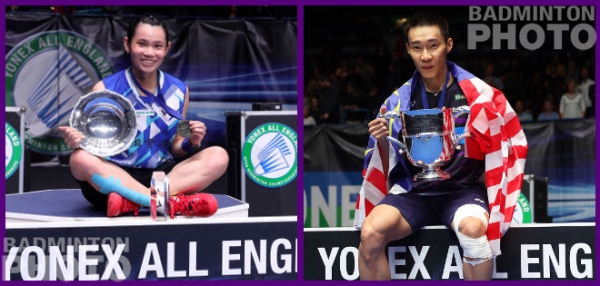
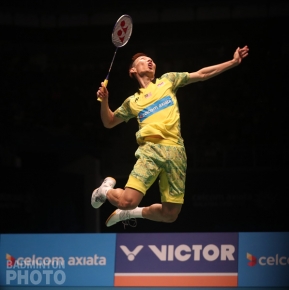
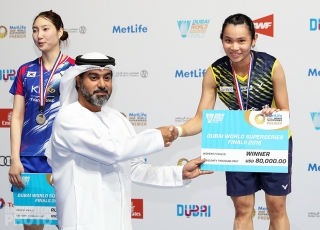
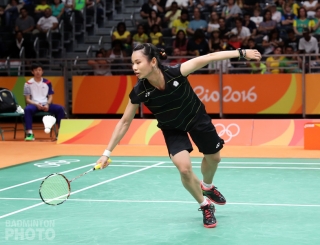
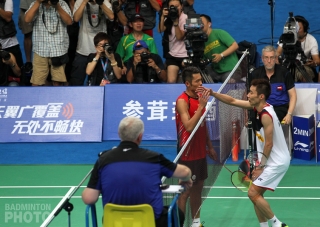
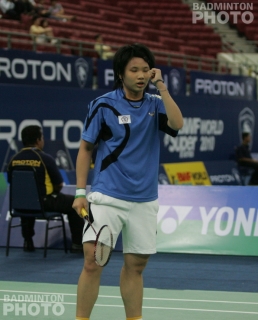
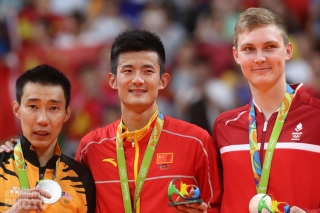
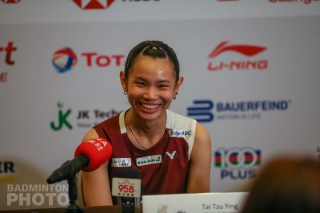
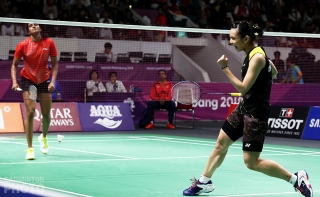


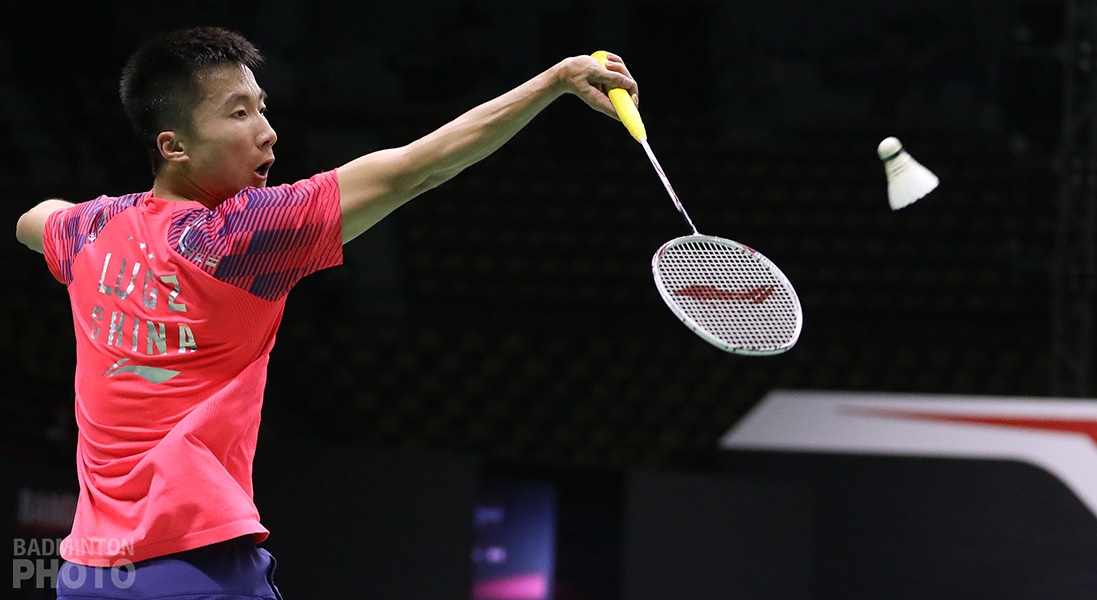
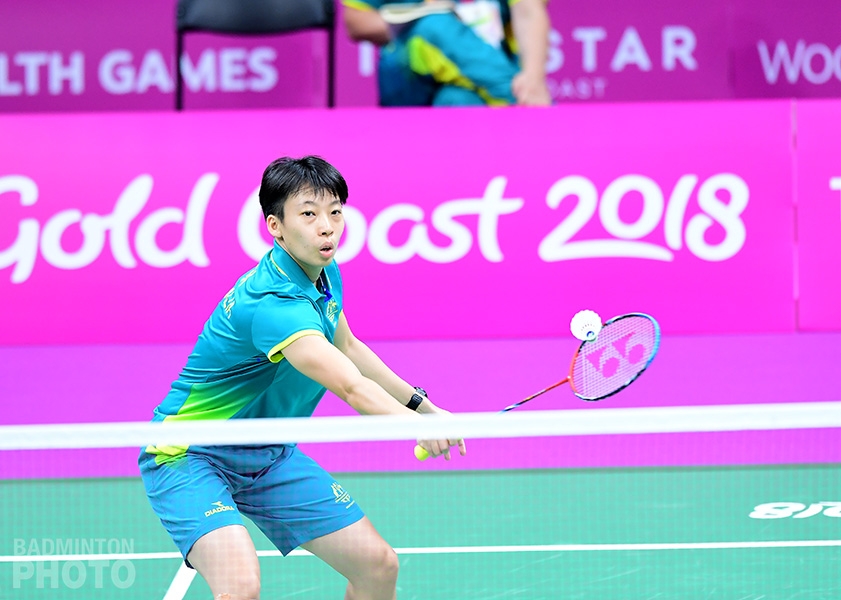
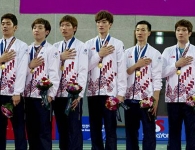


Leave a Reply